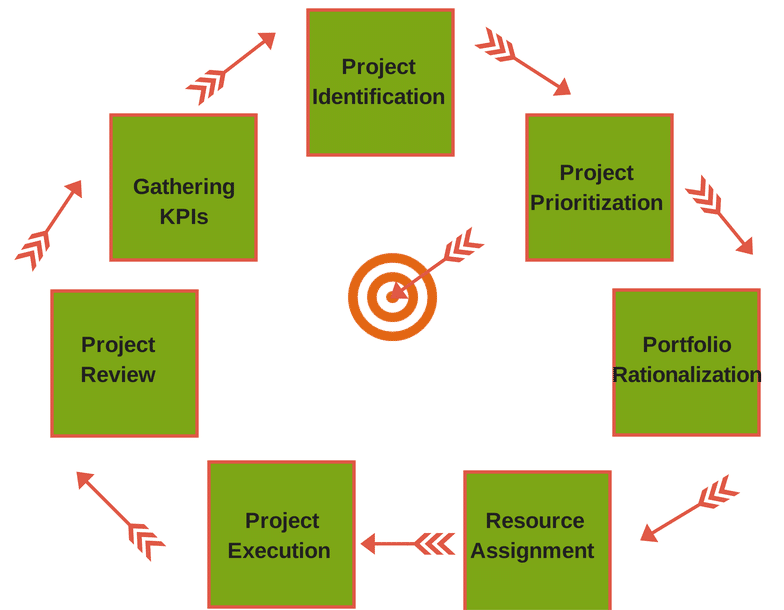For CMOs, CIOs and other management personnel Project Portfolio Management (PPM) ceases to be a simple administrative term and becomes the task they grapple with across the expanse of their career.
And why not!
According to Aberdeen Research Group, organizations with a robust management plan for their portfolio of projects reap up to 28.1% more profit than their competitors who continue to affect a haphazard approach.
What is PPM?
To be effective PPM should be viewed as a cycle. Simply put it is a set of iterative business practices geared to ensure that the company in question:
- Chooses projects that are in alignment with its ultimate enterprise vision and objectives and thus strive for smart goals
- Has a timeline and project plan that allows it to start implementing the projects from the beginning of the fiscal year instead of waiting till the end of the first quarter for resource allocation.
- Is capable of identifying projects and tasks that are interdependent, especially in a cross functional or inter department portfolios to avoid confusion and delays
- Can employ a gated feedback and review model wherein each stage of the project is scrutinized by qualified stakeholders in order to judge it “complete”
Without proper Project Portfolio Management and document collaboration, an organization always runs the risk of ending up with a troubled portfolio where more than 30% of the approved projects end up being tagged a “failure” by year end.
The Project Management Methodology for a portfolio
Most of the authorities in this field concur that a flawlessly executed PPM cycle should comprise of the following seven steps:
- Project identification to ensure that the portfolio is a balance of IT as well as non IT endeavors
- Review and prioritization to make sure that the projects chosen can yield significant returns immediately and incremental returns gradually
- Accepting or rejecting the projects in order to affect portfolio rationalization (getting rid of redundant or risky projects)
- Planning and assigning resources so that complicated projects benefit from the presence of experienced team members and all projects have enough fuel to reach the finishing line.
- Execution and support of projects in an organized structured manner with the help of the right tools and platforms to automate and report on important processes and reach the smart goals on time
- Monitoring and communication of progress to help the development team and stakeholders be on the same page throughout the project
- Lastly portfolio adjustment and review to gather data pertaining to important KPIs in order to gauge the year end success of the project
Project Portfolio Management is indeed an important contributing factor to the success of a business and the seemingly complicated cycle can be rendered simple with the support of the right team and a well suited project management and document collaboration platform.
Learn about other project management concepts in the Project Management Glossary.





